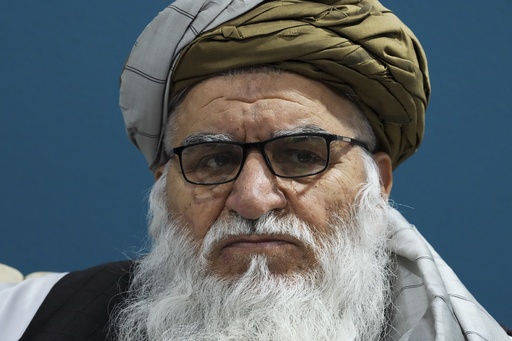
BAKU, Azerbaijan — The first delegation from Afghanistan to participate in United Nations climate talks since the Taliban regained control in 2021 has made its way to Baku, Azerbaijan, to seek international support for climate initiatives in their nation, which is heavily affected by climate-related challenges.
Matuil Haq Khalis, who leads Afghanistan’s environmental protection agency, emphasized to reporters that the country is grappling with significant climate issues, including unpredictable rainfall, extended periods of drought, and sudden flooding. He underscored the importance of global cooperation to address the pressing issue of climate change, stating, “All the countries must join hands and tackle the problem of climate change,” through a translator.
Afghanistan is classified as one of the most climate-vulnerable countries, ranking sixth on a recent list compiled by climate experts. The situation has become increasingly alarming, as evidenced by catastrophic events like the heavy rains in northern Afghanistan last March that led to flash floods, claiming over 300 lives. Research indicates that extreme rainfall has intensified 25% over the past four decades in the region.
Khalis highlighted that Afghanistan has developed national action plans geared toward combating climate change, with an impending update to its climate objectives planned for the upcoming months. He pointed out the country’s untapped potential in wind and solar energy, while stressing the necessity for international assistance to exploit these resources.
The delegation expressed gratitude to the Azerbaijani government for their invitation to the climate conference. However, they will participate with observer status due to the lack of international recognition of the Taliban-led government.
In response to a UN evaluation which suggested that women are particularly at risk from climate change and should be actively involved in mitigation efforts, Khalis remarked that “climate change impact doesn’t have any boundaries,” affecting women, children, men, flora, and fauna alike. He advocated for a collaborative approach to tackling the issue.
Khalis also mentioned that he has extended requests for bilateral discussions with various nations, including the United States, expressing openness to engage in dialogue if these invitations are accepted. “We were not part of the last three conferences … but we are happy that this time we are here and we will be able to deliver the message of Afghan people with the international community,” he added.
